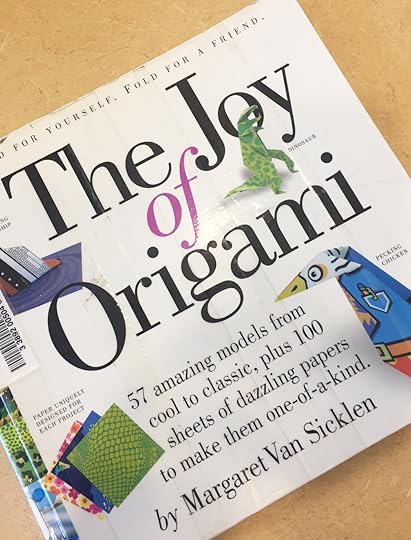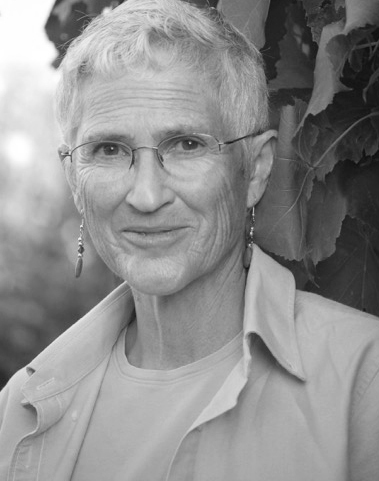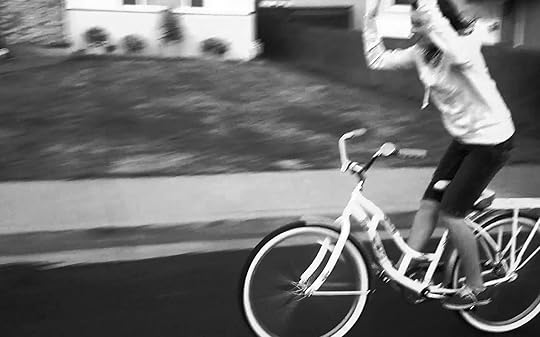Drew Myron's Blog, page 27
September 30, 2018
On Sunday: Orphans

As one week ends and another begins, what keeps you — and what will you let go?
orphans (noun): in typography, words or phrases that do not fit; in writing, phrases and lines discarded from original text but which the writer hopes will shine in a new work.
[ 1 ]
The morning smelled of fresh laundry.
[ 2 ]
these smooth suede hills
sedge and reed
stubble and stalk
cheat grass and ash
soft winter wheat
[ 3 ]
For years it was winter.
[ 4 ]
Some days, I feel so lucky.
A door opens, a smile widens, I am let into a life.
[ 5 ]
Some days I wake up missing you, counting the days and dreading the markers that will make you more gone. You are here, in my mirror, in my tears, everywhere and nowhere.
[ 6 ]
"Each poem is a miracle that has been invited to happen."
— William Stafford
[ 7 ]
The mind is always editor: sorting, sifting, discarding.
How much energy it takes to write and rewrite a life.
September 16, 2018
On Sunday, driving home
 Doubletake in Rawlins, Wyoming. Photo by Andre Myron.
Doubletake in Rawlins, Wyoming. Photo by Andre Myron.
1.
Sometimes when you are driving you begin to know things you can’t see or touch but have always carried: the way a jaw tightens to say nothing, how eyes can dart away a shame, and birds how they form along the telephone wire, each with a secret in a long silence of miles.
On a road for hours, you are sleepy with quiet when a hunger like longing wants the words in your throat to meet the world but knows, like a rain coming, that the feeling will fall and quickly pass. So you hold back and in the suspension the world waits and grows into something similar to illness and you remember the way a fever clarified your life.
Your map is a quilt of lines and dots, and you wear every landscape. You are numb with canyons and hills, with scrub and rock. Every terrain says try me, and so you are haybale and scorched field, broken window and rusted phone. You hold heat and storm, and keep breathing, slow and pronounced, over and over like a prayer or a plea. You are throat and lungs and fear.
Because stillness is a gift, you keep at the wheel, holding tight, holding on.
2.
If you ask, I'll say I'm happy. But I usually add the ish, happyish, wellish, because each moment is singular and subject to change.
3.
Was I born this cramped, all blister and knots? These weeds inside me, prickle and thistle, were they planted or did I emerge from scrubby plain, growing wind-worn and hard all on my own?
4.
These Sunday nights, raising sadness and regret. The solitude of Sundays, the letting go and gearing up. Looking back meets going forward, a loss and weight all at once.
5.
On Sunday, poem as prayer:
A quality of attention has been given to you:
when you turn your head the whole world
leans forward. It waits there thirsting
after its names, and you speak it all out as it
comes to you: you go forward into forest leaves
holding out your hands, trusting all encounters,
telling every mile, "Take me home."
— William Stafford
excerpt from "For People with Problems About How to Believe"
a poem that appears in An Oregon Message: Poems
August 31, 2018
You Belong In Your Life
 reminder no. 10 in a series • by drew myron
reminder no. 10 in a series • by drew myron
This is number ten one in a series of reminders that serve as notes to myself (and now you). Consider this a public service announcement, poetic nudge, sticky note, or just idle chatter.
Reminder, a series by Drew Myron
No. 1 - Note to Forgetful Self
No. 10 - You Belong In Your Life
August 23, 2018
Thankful Thursday: Inspired By . . .

On a weeklong writing project, I lost my way.
There was an agenda, a map, and destinations designed to inspire writing.
But the days got choked with smoke and my haze turned at first to malaise and then to rebellion: Who needs a vista! Who wants some fancy special event?!
I made plans, rescheduled those plans, then cancelled completely. I did not take the hike, drive to the lookout, or dine with the writers. I went instead to my favorite no-pressure, all quiet, mostly clean and quiet place: the library.
And there I wandered, losing my self on the Oregon Trail, in Walt Whitman, in snarky humor, and origami. I wrote and wrote and wrote, mostly a jumble, but maybe a nugget hides in the rubble.
The best part was the sweet relief, realizing inspiration comes to the willing. It's all here and here and here, all within reach. I know this, I do, but often forget.
On this Thankful Thursday, I am thankful, oddly, for plans that unravel and expectations unmet. In a small way, my frustration allowed another sort of writing to take foot, stumble, then, albeit wobbly, stand.
How to Fold
Find a flat surface.
Start with a single fold.
Fold in half.
Fold to back.
Rotate. Flip.
Fold. Unfold.
Difficulty will increase.
You may feel the chill of not knowing.
Keep steady. Like any trick, it will
take practice and a curious mind.
From luck to wisdom to surprise
you’ll build confidence.
Peel back the petals.
To create wings
fold a loving heart
and hold the center.
— a cut-up poem by Drew Myron, with lines from The Joy of Origami by Margaret Van Sicklen
It's Thankful Thursday.
Gratitude. Appreciation. Praise.
Please join me in a weekly pause
to appreciate people, places & things.
What are you thankful for today?
August 15, 2018
Is This A Poem?
You have your own oceans
Your mind is quick and sharp and strange.
You don’t have to be afraid of the oceans inside you.
Let the tides do their work. The moon grows
bright then dark, and then bright again.
Do not dwell in too much darkness.
Do not make a home in deep caves of loss.
Tell yourself.
If there’s no way to predict the thing that comes next,
what freedom would it give you to imagine this week and next?
Your ambition doesn’t
have to be greedy to hold its own wild energy.
It doesn’t have to be noisy to change
the world around you. Embrace the messy.
Remember to pay attention to where
sorrow lives inside you, and where in
your body you store love.
You don’t have to think your body into clarity.
You might feel the change roaring in the distance
and the change rumbling under your feet. What urgency
has held you tight and what are the words you want to hear?
You’ve traveled a long way through a world that is not your own.
Push your way back.
You have your own landscape, mountains and forests
and plains full of life. You have your own oceans
uncharted and blue and wild. You know the shape
of the world you move through.
Show up and just be you.
— a mash-up by Drew Myron of horoscope lines
from Madame Clairevoyant and Holiday Mathis
I'm in a quandary: Is this found poetry, a cut-up poem? Is attribution enough? My mind runs and reels. To borrow, to take, to remake — is this moral, correct, kind? If assembly is required, is it art or is it theft?
Dear Reader, is this a poem and can I call it mine?
August 7, 2018
Love that line!

So, wherever you came from, whichever way you swing,
whatever is standing in your way, just remember:
You’re bigger than that. Like the man said:
You contain multitudes.
— from Lawn Boy
a novel by Jonathan Evison
This semi-autobiographical story is packed with angst, anger, and the ingredients of real life: race, class, snark and smiles.
“What I wanted was a book written by a guy who worked as a landscaper or a cannery grunt or a guy who installed heating vents," says Mike Muñoz, the 22-year-old protagonist who mows lawns and imagines his life as an author. "Something about modern class struggle in the trenches. Something plainspoken, without all the shiver-thin coverlets of snow and all the rest of that luminous prose. Something that didn’t have a pretentious quote at the beginning from some old geezer poet that gave away the whole point of the book. Something that didn’t employ the ‘fishbowl lens’ or a ‘prismatic narrative structure’ or any of that crap they teach rich kids out in the cornfields.”
Thankfully, Lawn Boy cuts a fresh tale, true to life with hints of hope.
July 19, 2018
Feel Good Friday
weightlessness
is to want
nothing
is to have
everything
is to hold
a certainty
you will
outgrow
and forget
you ever
owned.
to want
the weightlessness
of age 10 is
to want to crest
a hill on a bike
alone for the
first time on
a road you
don’t know
with nothing
but strong
legs and
fearlessness.
— Drew Myron
The world is wracked and wrecked, frantic and full. It's Friday, let's finally, for a moment, set aside worry and slip into content.
What's your Feel Good Friday?
July 12, 2018
Waiting for the stewardess
 I Have Good News by Tony Hoagland
I Have Good News by Tony Hoagland
1.
Just as gin is more potent at 30,000 feet, so are poems. I'm reading a book on a late flight home when every line shakes me, and the quiet man sharing our armrest senses my tears and without saying a word I think he wishes me well.
2.
In the pool, my sister and I float, holding hands in hot summer sun, as if we always have.
3.
The other day I could not remember if the sun rose in the west and set in the east, or rose in the east and set in the west. I know the answer, but some days I question everything I think I know and realize I know so very little.
4.
At the nursing home, I ask the quiet elderly man, “Can I get you anything?”
“No,” he replies, “I’m just waiting for the stewardess.”
June 28, 2018
Thankful Thursday: Amens
Because the world is big and our troubles too, it's time for rest and perspective. Please join me for Thankful Thursday, a weekly pause to express appreciation for things large and small, from the puny to the profound.
On this Thankful Thursday, I am grateful for:
1.
Misread as message
In reading my horoscope the other day, this is what I saw:
"Reading the amens is a specialty of yours."
This is what it actually said:
"Reading the omens . . ."
I prefer the amens.
2.
Just for you
A friend sent me — by old fashioned mail, which is a gratitude in itself — a batch of handmade notecards. The cards are beautifully crafted, with matching, repurposed envelopes too. I'm impressed with her artful design and skill, and moved by the gift. With a single unexpected kindness, I felt a real attitude shift.
3.
Poems, here and gone
For more than 15 years, I've collected my favorite poems and placed them in one single, growing Word document. Kindness was in there, along with Praying, and pages of known and lesser-known poems that I stumbled across and then held close. Until last week, when I lost the 100-page file and over a decade of beloved lines — poof! gone!
I thought about reassembling the collection. But maybe not. Maybe it's time for new stock, reflecting my tastes and perspectives today. Some of the old standards will still be there but it's time now to find fresh favorites.
And you, dear reader and friend, what's in your collection? what are your favorite poems?
June 7, 2018
Fast Five: Bette Lynch Husted
 I've been troubled
I've been troubled
all my life
by the story
we don't tell.
— Bette Lynch Husted
author of All Coyote's Children
 Bette Lynch Husted writes with breadth and depth, carefully crafting poems, memoir and story. Her works include At This Distance (poems); Above the Clearwater: Living on Stolen Land (memoir); Lessons from the Borderlands (memoir essays); and All Coyote’s Children (novel).
Bette Lynch Husted writes with breadth and depth, carefully crafting poems, memoir and story. Her works include At This Distance (poems); Above the Clearwater: Living on Stolen Land (memoir); Lessons from the Borderlands (memoir essays); and All Coyote’s Children (novel).
Living in the small, eastern Oregon town of Pendleton, her work is woven with landscape, family and culture. Her latest work, and first novel, All Coyote's Children, has earned accolades from The Oregonian: "Thoughtful, superbly written and redolent with inviting characters and ideas. Husted's first novel deserves attention and prizes."
 It's time for Fast Five, in which we ask five questions that open the door to know more — and give away great books!
It's time for Fast Five, in which we ask five questions that open the door to know more — and give away great books!
To enter the drawing to win All Coyote's Children, simply write a comment in the Comment Section below, or send an email to: dcm@drewmyron.com. The drawing will be held on Sunday, June 17, 2018.
1.
How did you come to writing?
I was eight and my sister was ten when we broke into print on the children’s page of The Idaho Farmer with stories we had written one summer afternoon to entertain each other (both, as I remember, titled “Mystery in the Old Barn”). But though I kept writing, isolation in small rural communities and the demands of teaching made my next publication a long time coming. What made a difference was Fishtrap and later a series of wonderful workshops at The Flight of the Mind Writing Workshops for Women [founded by Judith Barrington and ran for 17 years], where I not only learned from people like Naomi Shihab Nye, Grace Paley, and Lucille Clifton, but also realized that people could hear my voice — and that getting my work out was “important for all of us,” as Alex Kuo wrote to me. I kept that piece of blue stationery above my desk for a long time, and I try to pass on this gift to other writers.
2.
You’ve written poetry, memoir and, most recently, fiction. Your work features a distinct and vivid sense of place. How has place formed you as a writer?
“The place,” my father called the benchland north-central Idaho homestead where he was born and where his children, too, would grow up. We were all bonded to it — by daily chores, of course, but also by the light “rolling down the mountain” each morning, the red-winged blackbirds’ return in late February just as the barnyard was beginning to thaw. The river sound of wind in the pines on the hill. “Place” showed me what it meant to be conscious, alive. It still does. Maybe it helps that I have spent my life in the rural inland Northwest where we are reminded of our relationship to the earth in ways we might not be if we were surrounded by concrete. But I can’t imagine not feeling this way.
3.
Your novel, “All Coyote’s Children,” is a powerful story of cultural and generational connections. In it, you write, “It’s not telling stories that gets us in trouble. It’s not telling them.” What prompted you to tell this story?
I’ve been troubled all my life by the story we don’t tell because, as one of the characters in All Coyote’s Children puts it, “it cancels all our mythologies. No wonder we can’t face it.” How do we face the fact that the indigenous peoples and cultures of North America were dehumanized, seen as savage, inferior, obstacles to be eliminated as we “tamed a continent” (a phrase used by our president in his recent Naval Academy graduation address) and then all but erased from our national consciousness? All of us who are non-Natives, even those brought by force to this continent, continue to live on stolen land. What do we do with this knowledge? And what do Native people do with their erasure from so much of “American history,” not to mention the ongoing pain of that story?
Ten years ago, the spiritual leader who married my son and his Umatilla/Cayuse and White Mountain Apache wife said, “We’re joining not just two people, but two families.” His words felt extraordinarily generous. I knew this wasn’t the complete answer to my question, yet that day healing seemed possible.
But only if we tell our own true stories and listen carefully enough to hear each other’s. In many ways, this is what draws me to writing: trying to stay open, receptive to the stories that connect us.
4.
A character in your novel says, “Life is hard, and will get harder.” In the face of difficulty, what keeps you going?
I’ve read that the Cheyenne People have a saying: A nation is not conquered until the hearts of its women are on the ground. Then it is finished, not matter how brave its warriors, or how strong their weapons.
The Cheyenne may be acknowledging this truth: it takes a lot to put the hearts of women on the ground. “Survival is hard sometimes,” Leona says in All Coyote’s Children — but though she has stumbled, she’s still upright, and helping the lives of others to go on. My own mother was such a woman — able to lift her eyes to the sunset or blue-black thunderheads or Orion climbing the sky no matter the challenges she faced. (“I’d catch another bubble if I waited,” she copied on the scrap of paper that’s now pinned to my own bulletin board. “The thing was to get now and then elated.”)
Sometimes, though, the difficulties can be overwhelming. What keeps me going is writing, feeling my way forward one word at a time.
And I’m fortunate to belong to a wonderful poetry workshop group. We drive from various corners of Oregon to meet once a month, each of us knowing that this sharing of words (and food and wine and friendship) is a lifeline.
5.
What’s the best writing advice you’ve received?
The late Ursula K. Le Guin was a member of that workshop group. We carry her with us always, hearing her voice in the stories she left the world and treasuring our own memories, her careful critiques, the image of her sitting in the wicker chair on Jeannette’s side porch stitching or sketching — but we miss her, we miss her.
Last month I watched the trailer of Arwen Curry’s forthcoming documentary Worlds of Ursula K. Le Guin and heard Ursula say, “To learn to make something well can take your whole life. And it’s worth it.”
One last gift. And the best writing advice any of us could ever receive.
Bonus Question: I’m a word collector and keep a running list of favorite words. What are your favorite words?
The words that immediately come to mind are Clearwater and Kooskia (pronounced KOOS-key), words I grew up with, words that mean home. I always thought I was lucky to live near such a beautiful river, and one so beautifully and accurately named. But the place names I usually love most are the ones from Native languages, Kooskia and Umatilla, Wallowa, Walla Walla. So why would “clear water” and “Kooskia” bothspring to mind as my favorite words, I wondered? Wikipedia tells me that “the river got its name from the Niimiipuutímt naming as Koos-Koos-Kai-Kai – ‘clear water.’” That may well be a condensed version of a much deeper language connection—still, it makes me very happy.
 Win this book!
Win this book!
Enter the drawing for All Coyote's Children. Write a comment in the Comment Section below. Feeling shy? Zip an email to dcm@drewmyron.com.
The drawing will be held on Sunday, June 17, 2018.




